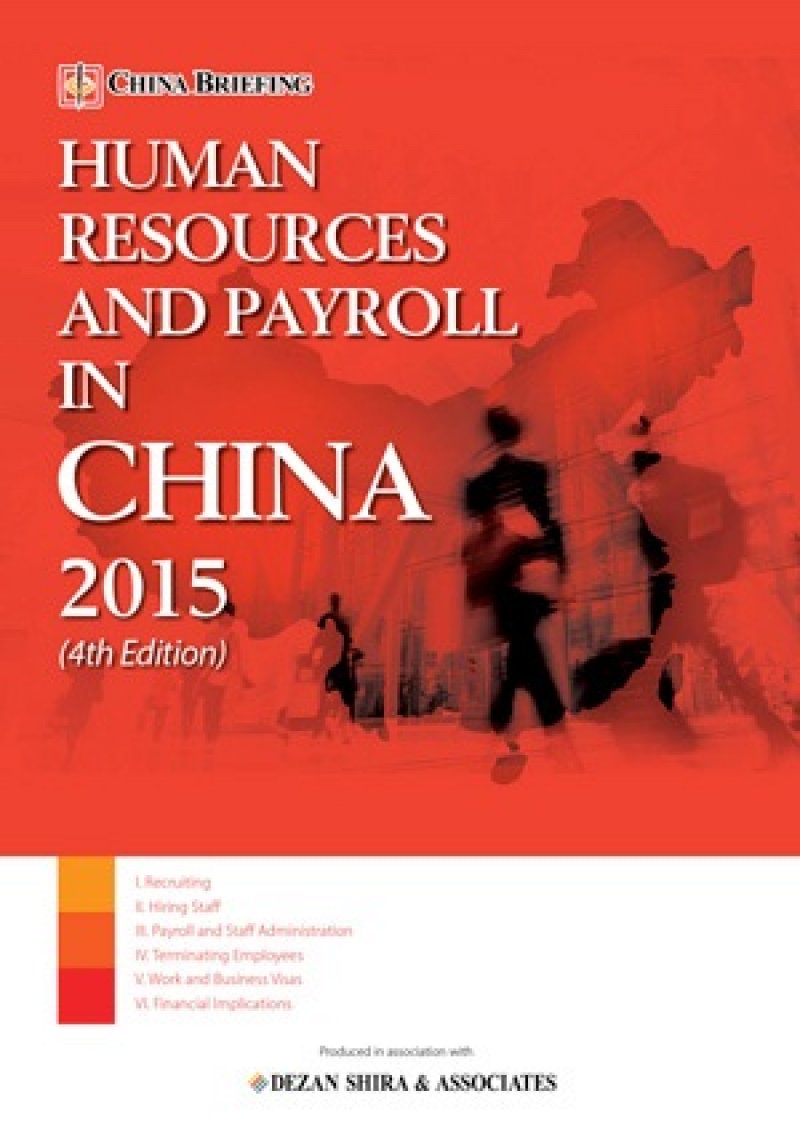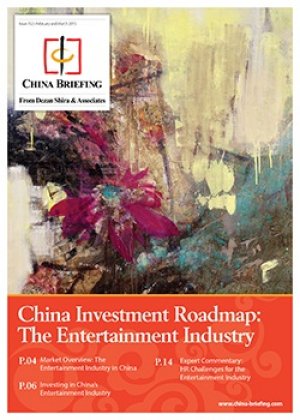China Regulatory Brief: Incentives for Foreign-invested R&D Centers and the End of One-Child Policy in China
Beijing Allows the Establishment of Sino-foreign Joint Venture Travel Agencies
On October 27, the State Council circulated provisions for temporarily adjusting the special administrative measures for approval and access in Beijing. In effect till May 5, 2018, it allows:
- The establishment of eligible Sino-foreign joint venture travel agencies in Beijing Municipality engaging in Chinese nationals’ tourism services abroad and also to Hong Kong Special Administrative Region and Macao Special Administrative Region;
- Selection of appointed areas where cultural and recreational industries gather, and allowing the establishment of wholly foreign-owned performance brokerage institutions that provide services within the administrative area of Beijing Municipality;
- Cancellation of the restriction that the Chinese party in foreign invested joint venture aircraft maintenance projects are the primary holder of shares.
Foreign investors engaged in the above-mentioned industries are subject to certain restrictions in other regions of China based on the Guidance Catalogue for Foreign Investment Industries.
Shanghai Encourages the Development of Foreign-invested R&D Centers
The General Office of the People’s Government of Shanghai Municipality has issued new objectives to encourage the development of foreign invested R&D centers in Shanghai, which will become effective as of November 1. The following are the primary intentions set out to attract such investment:
- Encourage foreign invested R&D centers to cooperate with local organizations, participate in the construction of local R&D public service platforms, and utilize R&D resources and global innovation networks.
- Protect intellectual property rights. Encourage foreign invested R&D centers to apply for patents in China and apply to become the pilot and demonstration unit of patent work in Shanghai as required; protect the intellectual properties of the foreign invested R&D centers by law.
- In order to attract high skilled talent, multi layered and multi channel training will be subsidized, and the procedure for applying for residence and employment permits will be simplified, with foreigners able to enjoy residence permits for a year.
![]() RELATED: Business Advisory Services from Dezan Shira & Associates
RELATED: Business Advisory Services from Dezan Shira & Associates
China to End 35-Year-Old One Child Policy
Following a four-day Communist party summit in Beijing, the Chinese government has decided to scrap its one-child policy, which was introduced nationwide in 1979. Couples are now allowed to have two children, in a move to deal with the country’s aging population. Previously, only families in rural areas were allowed to have two children if the first child was a girl. It is estimated that by 2050, the elderly population will total 400 million, accounting for one-third of the country’s total population.
Foreigners Working in Shanghai Allowed to Contribute to Housing Fund
On October 27, the Shanghai Housing Provident Fund Management Committee issued a notice, which allows qualified foreigners working in Shanghai to contribute to the housing fund. In China, the housing fund is a particular kind of social insurance which is contributed by both the employer and the employee each month and can later be used to withdrawn for down payment, purchase, construction and renovation of a house, or to subsequently pay back a mortgage.
The notice clarifies that foreigners who have signed a legal labor contract with a Shanghai-based company and have obtained a residence and work permit may make contributions to the housing fund based on the below calculation method:
Housing fund= Employee’s average monthly salary of the previous year×7%* (contributed by the foreign employee) + Employee’s average monthly salary of the previous year×7% (contributed by the employer)
7 percent*: Please note that this percentage only applies in Shanghai; the contribution made by the employers ranges from five percent to 25 percent of the employee’s average monthly salary depending on local regulations.
|
Asia Briefing Ltd. is a subsidiary of Dezan Shira & Associates. Dezan Shira is a specialist foreign direct investment practice, providing corporate establishment, business advisory, tax advisory and compliance, accounting, payroll, due diligence and financial review services to multinationals investing in China, Hong Kong, India, Vietnam, Singapore and the rest of ASEAN. For further information, please email china@dezshira.com or visit www.dezshira.com. Stay up to date with the latest business and investment trends in Asia by subscribing to our complimentary update service featuring news, commentary and regulatory insight. |
![]()
 Human Resources and Payroll in China 2015
Human Resources and Payroll in China 2015
This edition of Human Resources and Payroll in China, updated for 2015, provides a firm understanding of China’s laws and regulations related to human resources and payroll management – essential information for foreign investors looking to establish or already running a foreign-invested entity in China, local managers, and HR professionals needing to explain complex points of China’s labor policies.
 Selling, Sourcing and E-Commerce in China 2016 (First Edition)
Selling, Sourcing and E-Commerce in China 2016 (First Edition)
This guide, produced in collaboration with the experts at Dezan Shira & Associates, provides a comprehensive analysis of all these aspects of commerce in China. It discusses how foreign companies can best go about sourcing products from China; how foreign retailers can set up operations on the ground to sell directly to the country’s massive consumer class; and finally details how foreign enterprises can access China’s lucrative yet ostensibly complex e-commerce market.
China Investment Roadmap: The Entertainment Industry
In this special edition China Briefing Industry Report, we cast our gaze over the broad landscape of China’s entertainment industry, identifying where the greatest opportunities are to be found and why. Next, we detail some of the most important issues for foreign investors to be aware of, including legal, regulatory, and tax considerations specific to the industry. Lastly, we provide an insider analysis of the sector’s unique HR & payroll challenges.
- Previous Article China Regulatory Brief: Financial Reform in the Shanghai FTZ, Upcoming 13th Five-Year Plan
- Next Article China Regulatory Brief: Zero VAT Rate for Exporting Services, New Seed Law Released











